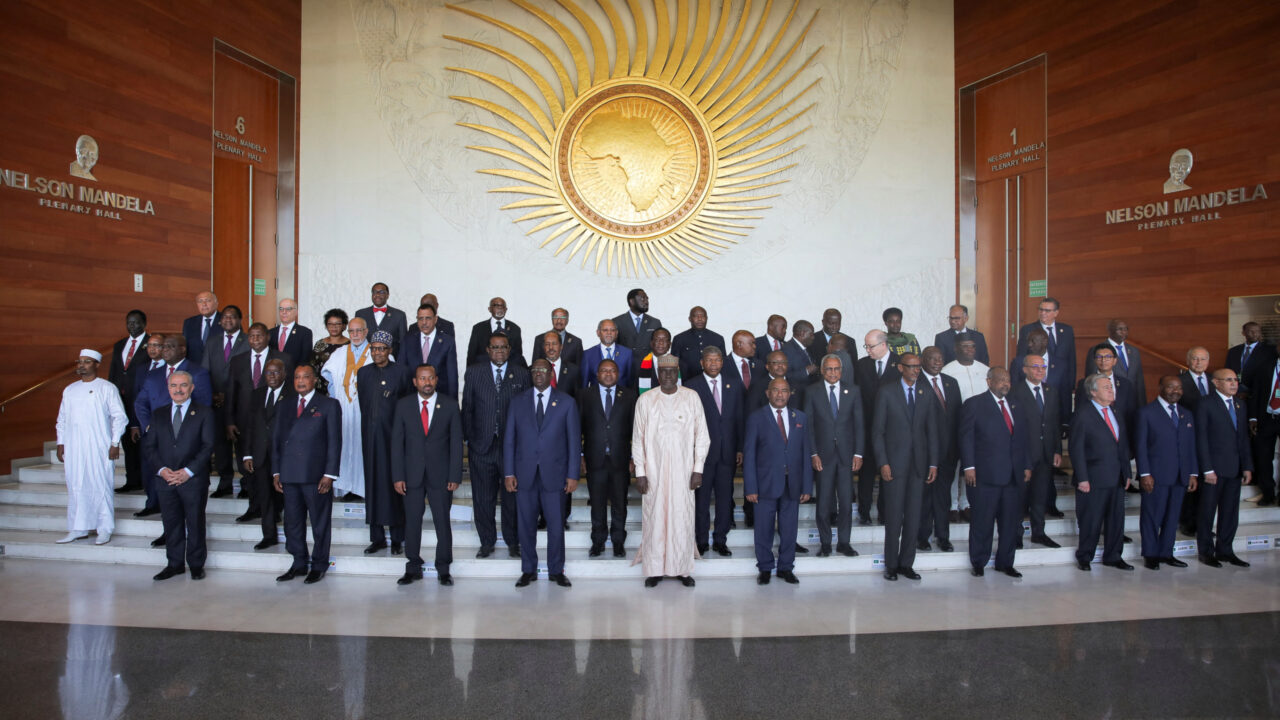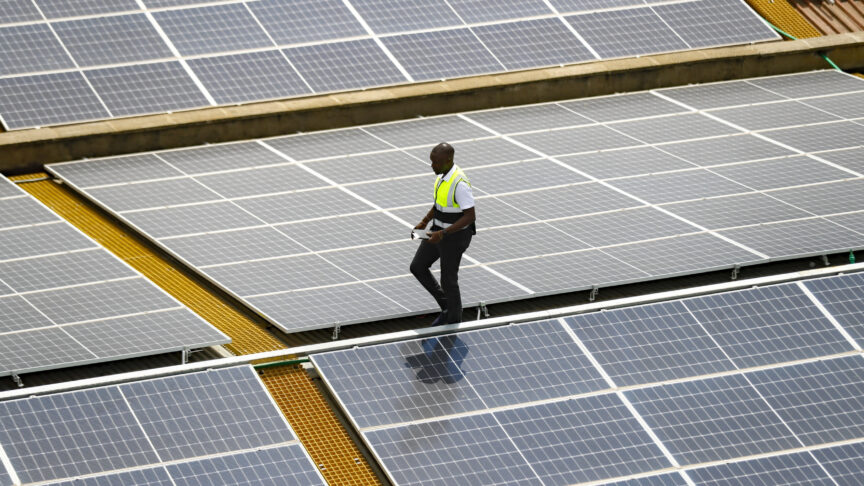From rule-taker to rule-maker: Africa in the changing world order
As African countries look to redefine their role in the shifting global landscape, they should pursue non-alignment and aim to help shape the rules of the future world order
There is no doubt that the world is in the throes of tremendous change. With the post-1945 multilateral system and the Pax Americana that underpinned it slowly but surely declining, African countries have an opportunity to redefine their role in the world order. They are increasingly looking east to emerging and re-emerging powers for partnerships. But as they do so, they need to ensure they do not move from one unhappy partnership to another.
African countries have long been discontent with the existing multilateral system, which they joined as rule-takers from a vast colonial territory under the domination of various European powers. There is much in the history and contemporary experiences of African partnerships with the West that the countries of the continent are right to be uncomfortable and even outraged about, including perceived Western political, economic, and cultural imposition, double standards, and conditional support. Today, Africa boasts 55 member states of the United Nations, vast natural resource endowments, an overwhelmingly youthful population, and strong prospects of becoming the next pole of global economic growth, making it well placed to be a joint rule-maker.
Various African political leaders have embraced the erosion of the West’s long-running and unchallenged hegemony in global affairs and the emergence of various alternative centres of power and influence as an opportunity to exercise newfound choice in international relations, pursuing partnerships with different countries to serve their national interests. Ethiopia, for example, has embraced Chinese aid and investments while continuing to tap into Western development assistance.
Many African leaders are looking east to China, India, Russia, Turkey, and other (re-)emerging powers, large and medium, for partnership. Zimbabwe was the first to officially espouse a “Look East Policy”, which it adopted in 2003 when the United States and the European Union imposed sanctions against the government’s alleged assault on human rights and the rule of law, and began to work closely with China as a strategic, economic, military, and political partner. However, Harare is far from alone in its resolve to consciously diversify relations away from the West by cultivating them with countries of the east, especially China. China is now Africa’s biggest trading partner, with $117.51 billion worth of imports from the continent and $164.49 billion of exports to it in 2022.
Some assume that partnerships with the east will be more equal, less paternalistic and conditional, and decisively more respectful of the principles of non-interference and the sovereign independence of states. And, naturally, by diversifying their cooperation with countries of the east, policymakers hope to reduce the vulnerabilities that are associated with a one-sided dependence on the West. As summed up by the former president of Senegal, Abdoulaye Wade, China “has a much greater sense of the personal urgency of development in Africa than many Western nations”.
African policymakers have begun to attend periodic summit-level meetings with new centres of power such as China, India, Russia, and Turkey. They have done so, of course, while continuing to participate in summits with the EU, the US, France, and Japan. Alongside the expansion of trade with the east, development assistance and commercial loans have also ballooned, supporting Africa’s major domestic infrastructure development agenda.
Multi-polarity allows countries of the continent to exercise more agency in determining their own affairs. However, it would be a fatal error for African leaders to assume that any of the new or re-emerging powers in the international system are driven by altruism in their external relations. Whether old or new, re-emerging or re-scaling, growing in influence or declining in overall reach, all states have clearly defined interests which they seek to maximise.
In seeking to exit unhappy elements of their existing partnerships, African countries could end up entering into other unhappy partnerships
As new or (re-)emerging powers seek strategic inroads in a richly endowed continent such as Africa with many valuable assets of global interest, they naturally present themselves as either representing a new approach to international affairs and partnership or offering a much better package of ‘friendship’ and ‘solidarity’ than older partnerships. African leaders might be tempted to accept such messages, but they should not get carried away by them. If the continent wants to be a co-rule-maker in an emerging new world order, it needs to adopt a more nuanced approach. Otherwise, in seeking to exit unhappy elements of their existing partnerships, African countries could end up entering into other unhappy partnerships that are lop-sided and even outrightly exploitative. Unless they are clear-sighted in organising their international relations around their own interests, they risk being reduced to pawns among competing powers in a multipolar world. The huge debts that various African countries owe China, for example, should alert leaders and citizens to the fact that no country is serving a free lunch. China, like any other creditor country, is in business.
Some commentators argue that Africa is already suffering the consequences of engaging in a more competitive multipolar world without clarity of vision and purpose. Various centres of power, from the EU and the US, to India, Turkey, Russia, and the United Arab Emirates, are competing for the continent’s natural resources, markets, and military bases. As they seek avenues to plug African countries into their global geopolitical schemes, the region is becoming fragmented, undermining its capacity for coordinated collective action.
However, despite the slow pace so far, it is not too late for the continent to play a robust and autonomous role in defining the rules of a new world order. To do so, African leaders need to avoid becoming beholden to any power centre and rather pursue an enlightened non-alignment that foregrounds the sovereignty of continent and the security, welfare, and freedom of its peoples. One obvious way of doing this is to develop common positions on various issues of concern.
African countries also need to immediately begin to define proposals for the principles, values, and rules that work for them in the context of a new world order. For this to happen, they need a vision of leadership on both a national and a continental level and a rupture with the extraverted development and governance paradigms inherited from the colonial past that consign Africa to the exclusive role of an exporter of cheaply priced raw materials to the world and an importer of overpriced finished products. They also need increased investment in coordinated continental action under the auspices of a properly revamped African Union and a willingness to take much bolder collective action in order to claim a rightful place for Africa in global governance systems and processes.
In taking on a proactive role in the making of a new world order, African diplomacy could blunt the dangerous rivalries that are threatening the world. Above all, Africa must not carry over a syndrome of dependency into the new global order. It is time for the continent to stand up for itself.
The European Council on Foreign Relations does not take collective positions. ECFR publications only represent the views of their individual authors.



